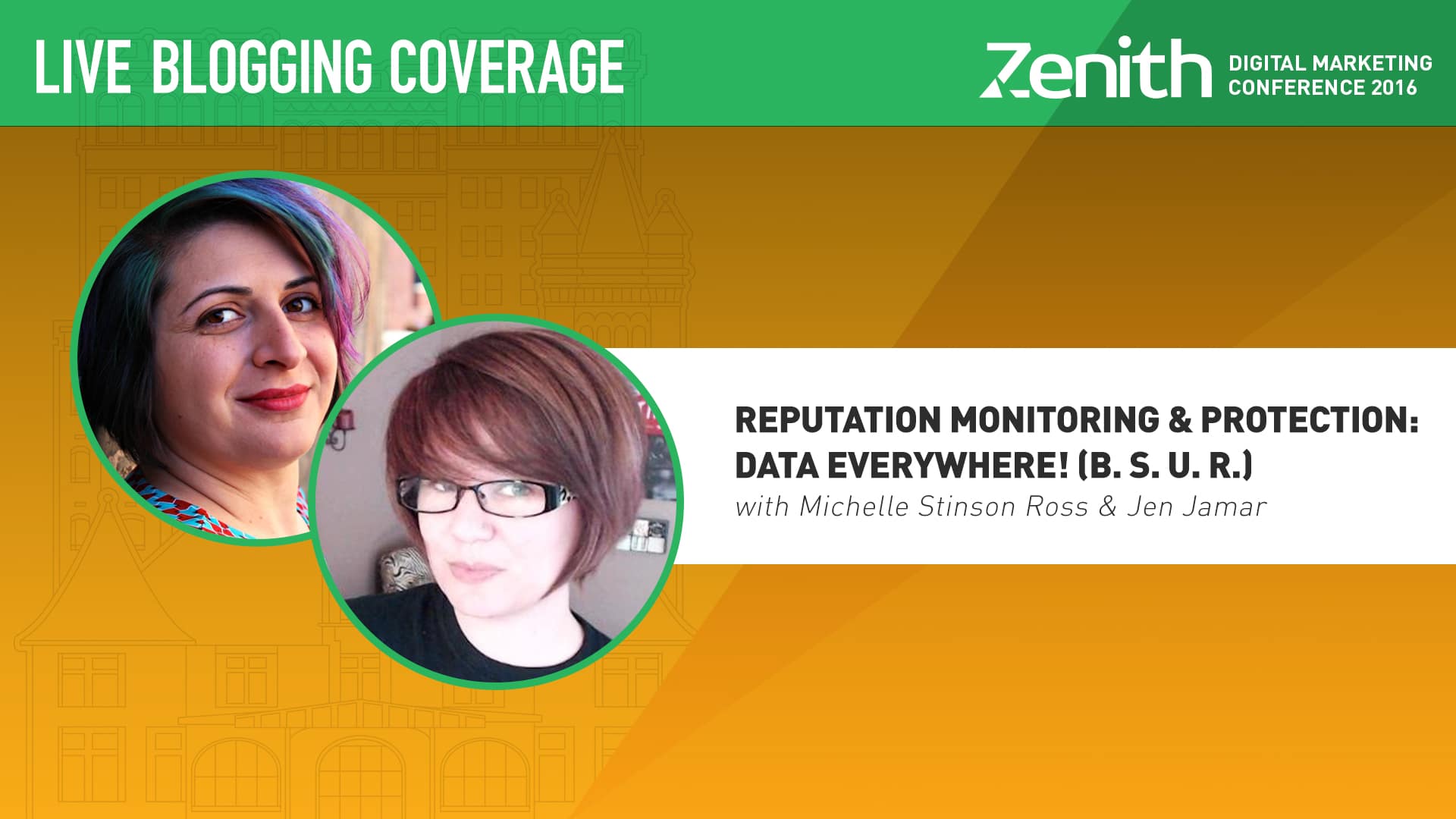Michelle Stinson Ross is a recognized authority in content marketing and the co-host of #socialchat. Jen Jama is involved in the phenomenally successful #smbmsp, one of the biggest and longest running social media breakfasts in the country.
Let’s talk reputation management! It’s “the practice of crafting strategies that shape or influence the public perception of an organization, individual or other entity on the Internet. It helps drive public opinion about a business and its products and services.” This is NOT passive. “Craft” “shape” “influence” these are action words. It. Takes. Work.
Estimates are that up to 60 percent of a company’s value can be in its reputation. That’s why it’s SO IMPORTANT to monitor. This means business and affects the bottom line.
Think about how you shop on Amazon. Do you look at the star reviews? Which ones do you read? So many people read the 1-star reviews – think of how many sales that costs.
Jen shows the example of Athens Café in Robbinsdale, Minn. It has no website but a 4.7-star review rating in Google. Guess what: It gets business. This isn’t limited to consumer-facing businesses. Every business gets reviews that build an online reputation. Think: Angie’s List, Yelp and Facebook Groups.
Think about the different places your customers might be talking about you. These are the places you need to watch for your reputation monitoring.
Who is contributing to your online reputation? Official communications, employees, customers, news outlets, blogs, forums and more.
Reputation monitoring is an active process. Think about who you want to become, then build that reputation.
You need your reputation to…raise money, sell products, have an audiences, grow revenue. Reputation can help you push yourself forward.
You are what you project. Are you projecting something who people will TRUST for what you can do for them?
Stay in the control seat here: Know what conversations are happening and respond where appropriate. Identify and encourage INFLUENCERS. They don’t have to be the big influencers. Think on a micro-level.
Reputation monitoring goals: Win or learn. Win a great mention or recommendation; learn why you didn’t get one and how to turn it around.
What to monitor: engagements, review ratings, mentions. These are hard numbers. You can quantify them.
Quantifying sentiment is a little more difficult and not necessarily reflected in the hard numbers. Don’t forget: Watch for neutral engagement. You want people to LOVE you and what you do. This is where you can learn something.
Always monitor your brand terms, including common misspellings and variations. Watch domain names as well. This is especially true if you weren’t able to get the same username across every social channel. People may use your Instagram handle in Twitter without knowing your Twitter handle is different.
Huge: Own your social. Claim your brand on social channels, even if you don’t think you’ll use them. It may take a little time, but it’s far preferable than someone else claiming it. Side note: If it’s not a channel you plan to be active in, give people some signal to go find you where you are active.
Share, amplify and reward your positive signals. Acknowledge problems and offer solutions when you need to.
Should I monitor my competition? YES! Know what they are up to, know who is happy with them and who is unhappy with them. You might see pain points they create for their customers and you can create content that addresses it – and lure them to your camp.
DO NOT participate in negativity against your competitors. Don’t lower your brand to being a troll. That would be BAD for your reputation.
Reputation monitoring will help you stay ahead of the curve. You can adjust your message, time promotions, upsell, cross-sell and get quick wins.
Want a FREE social media monitoring cheat sheet? GO HERE: Bit.ly/RockYourRep









